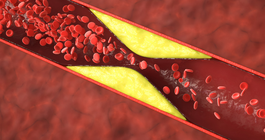
September 03, 2024
 CHRIS LANDSBERGER/THE OKLAHOMAN; USA TODAY NETWORK
CHRIS LANDSBERGER/THE OKLAHOMAN; USA TODAY NETWORK
A federal program that made COVID-19 vaccines free to uninsured Americans ended in August, earlier than its expected closure in December.
A federal program providing free COVID-19 shots to uninsured people has shut down at a time when the coronavirus is spreading at high rates across the United States and updated vaccines have just come to market.
The federally-funded Bridge Access Program was supposed to end in December, but it instead ended last month due to funding cuts. The program has provided more than 1.4 million free COVID vaccines since September 2023 to uninsured people and to others whose insurance plans did not pay for COVID shots.
Now, an estimated 25 to 30 million people without insurance will have to pay out-of-pocket for vaccines, which last year carried a price tag of at least $115 – and which may cost as much as $200 now, according to the Washington Post.
"What's at stake is we are reverting back to a system where a person's financial ability to be able to pay will determine their ability to be healthy," Raynard Washington, who leads the Mecklenburg County health department in North Carolina, told the Washington Post.
People covered through Medicaid, Medicare and most private insurers will still be able to get the new vaccine for free. Children 18 and younger can access free COVID vaccines through the federal Vaccines for Children program.
Updated COVID vaccines that target the current variants of the virus came out late last month.
The Centers for Disease Control and Prevention recommends that everyone 6 months and older get an updated COVID vaccine to protect from infection, hospitalization and death. COVID infection rates surged in recent months, although COVID-related hospitalizations and deaths have remained low, according to the CDC.
The Philadelphia Department of Public Health reported an uptick over the summer in positive COVID tests, emergency department visits where people tested positive and COVID-related hospitalizations – but not an increase in deaths related to COVID.